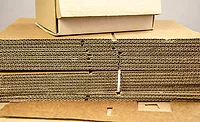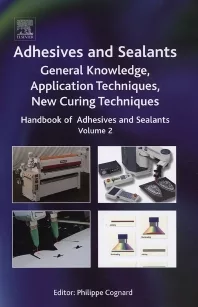Case Study: Air-Operated Double-Diaphragm Pumps Provide the Glue of the Operation for an Adhesives Manufacturer
Air-operated double-diaphragm pumps offer multiple benefits for adhesive and sealant manufacturing operations.
As a high-volume manufacturer of adhesives and sealants, SABA Dinxperlo B.V. has encountered some “sticky” situations over the years. Founded in 1933 in the Dutch municipality of Wateringen, the company relocated across the country to the German border town of Dinxperlo in 1935, where its operations remain today. Over the years, SABA has grown into a leading independent producer of high-quality adhesives and sealants for industrial and building applications.
| Jump to: |
SABA’s Business Unit Industry-Adhesives is tasked with producing and supplying adhesive systems that are used worldwide in the foam-processing and PVC markets. SABA uses its eight decades of experience to identify the challenges inherent in the adhesive and sealant manufacturing business, and takes pride in developing the best and safest process systems.
“SABA is proud to say that we are the top supplier of adhesive systems to the bedding and furniture market, and we are very focused on safety and quality for the industry,” said Tonny Zaarbelink, technical manager of foam bonding for SABA. “We produce our adhesives in the safest way possible and transfer that safety to our customers.”
Prioritizing Safety
Safety in the production process has had to be a main consideration for SABA because the raw materials used to make adhesives and sealants need to be handled carefully. The typical adhesive production chain at SABA’s manufacturing facility sees the raw materials delivered by truck and then transferred into holding tanks. From there, a computerized system dictates how much of the raw material will be needed to make a specific adhesive. For example, if four tons of adhesive need to be produced, the computer lets the system know how much of each raw material must be transferred into the mixing and blending tanks. After the new adhesive is created, it can be held in a storage tank or transferred into individual containers, such as 210-l (55-gal) barrels or 1,250-l (330-gal) IBCs, before being shipped to the end user.
Finding the Perfect Pump
In terms of operation, the pumps that are used to transfer both raw materials and finished products cannot leak, as this not only results in lost revenue from product waste and increased maintenance and cleanup expenses, but is also a safety hazard for plant personnel. The pumps must also offer low-shear operation; the adhesives and sealants can be damaged during production if subjected to excessive agitation.
After experimenting with many different types of pumps through the years, including centrifugal and gear styles, and trying out numerous brands of air-operated double-diaphragm (AODD) pumps, 20 years ago SABA identified a solution in AODD pumps from Wilden® Pump & Engineering of Grand Terrace, Calif. Since 1955, Wilden, which became a founding member of the Dover Corp.’s Pump Solutions Group (PSG®) in 2008, has been a manufacturer and supplier of AODD pumps for a wide range of industries, including those that require no-leak, low-shear product handling and the capability to be reliably used in potentially explosive manufacturing atmospheres.
Recommending the Wilden pumps to SABA was Gerrit Klaassen, commercial director of Holland Air Pumps (Oirschot, the Netherlands), a supplier of Wilden pumps. “SABA needed a pump that performed well in pumping sticky materials, and they were having leakage issues with gear pumps,” says Klaassen. “We solved those problems by suggesting they use Wilden pneumatic pumps.”
“We made a good choice with these Wilden pumps; they are still going strong,” said Henk Blom, manager of technical service for SABA, who made the decision to purchase the pumps two decades ago. “It is important for water-based adhesives that these pumps have less shear than a centrifugal or a gear pump, so it’s very good for us to use Wilden pumps with these kinds of materials.”
Optimizing Pump Technology
The unique characteristics and requirements of the raw materials that SABA uses and the finalized products it produces also mean that stainless steel pumps with PTFE (Teflon®) diaphragms, elastomers and check balls are required. Wilden delivers that to SABA with its Original™ series PX4 and PX8 (38 and 51 mm) clamped AODD pumps and Advanced™ series PX400 and PX800 bolted AODD pumps. For all of its operational advantages, AODD pump technology has always had to fight the battle of optimizing air usage. Wilden has made many breakthroughs in this area over the years, including the development of its Pro-Flo X™ air distribution system (ADS), which allows the pump user to dial in the most efficient flow rate for the pumping application.
“We don’t have any problems with the ADS; it never stops,” Blom says. “We’ve turned to Pro-Flo products from Wilden to maximize our efficiency and air consumption.”
In total, SABA has nearly 30 Wilden AODD pumps in operation, including several T8 (51 mm) models that have been operating for more than 20 years.
“Over the years, we’ve had a lot of different brands of air-driven pumps in the factory, and we were always looking for a pump that we could use everywhere and had the special features that we needed,” says Blom. “With other brands, it was hard to get Teflon membranes, and we are able to do that with Wilden. The price of the pumps is good considering the quality we get. With Holland Air Pumps, we also have a partner that can deliver all the Wilden spare parts we need, and if we need a new pump, we can get it in a few days because they have all of the parts in store.”
Rarely, if ever, are any spare parts needed because the Wilden pumps are truly leak-free, which means that not only are costly cleanups avoided, but so are the ancillary manpower costs that go with them.
“With other types of pumps, we had to clean them every week, which took 1.5 to two man-hours, and with the Wilden pumps we clean them every three months or so, which is a huge savings in man-hours per week,” says Zaarbelink. “We also found that most of the competitive pumps after a certain time will have an internal leakage that means the raw material will get into the pump’s air engine. We find that with Wilden, the diaphragms really stand up to aggressive materials for a long time.”
A Reliable Partner
SABA has recognized the potential pitfalls in manufacturing adhesives and sealants, and has worked for 80 years to remain innovative and create products that satisfy the needs of many industries, including bedding and furniture. Side-by-side with SABA for the past 20 years, Wilden’s stainless-steel AODD pumps have provided the reliability and operational excellence that SABA demands.
“Twenty years ago, we switched to Wilden pumps, and we have stayed with them ever since,” says Zaarbelink. “After 20 years, we have found that they are very reliable. The ongoing maintenance costs are low, so we are very happy with the Wilden pumps.”
For more information, visit www.wildenpump.com or www.psgdover.com.
While air-operated double-diaphragm (AODD) pumps from Wilden make up the bulk of the pumps that SABA Dinxperlo B.V. uses in its adhesive manufacturing systems, the company has found additional success with the products from another member of the Dover Corp.’s Pump Solutions Group (PSG). Almatec® of Kamp-Lintfort, Germany, is a manufacturer of AODD pumps that have a solid-body design, are dry-run and self-priming capable, offer gentle product displacement, can handle solids, and feature the patented PERSWING P® air control system.
Specifically, SABA uses several CHEMICOR series pumps in its production processes, which have been supplied by Holland Air Pumps. CHEMICOR pumps offer a compact, solid design that feature product chambers with soft contours that result in smooth flow channels and no dead spaces in chemical-processing applications.
“We have incorporated some Almatec CHEMICOR series pumps where appropriate into our operations, and they are ideal because they produce less noise and are so easy to use,” says Tonny Zaarbelink, technical manager of foam bonding for SABA. “Their solid construction also makes them perfect for use in handling the specific raw materials that are required in adhesive manufacturing.”
Looking for a reprint of this article?
From high-res PDFs to custom plaques, order your copy today!





